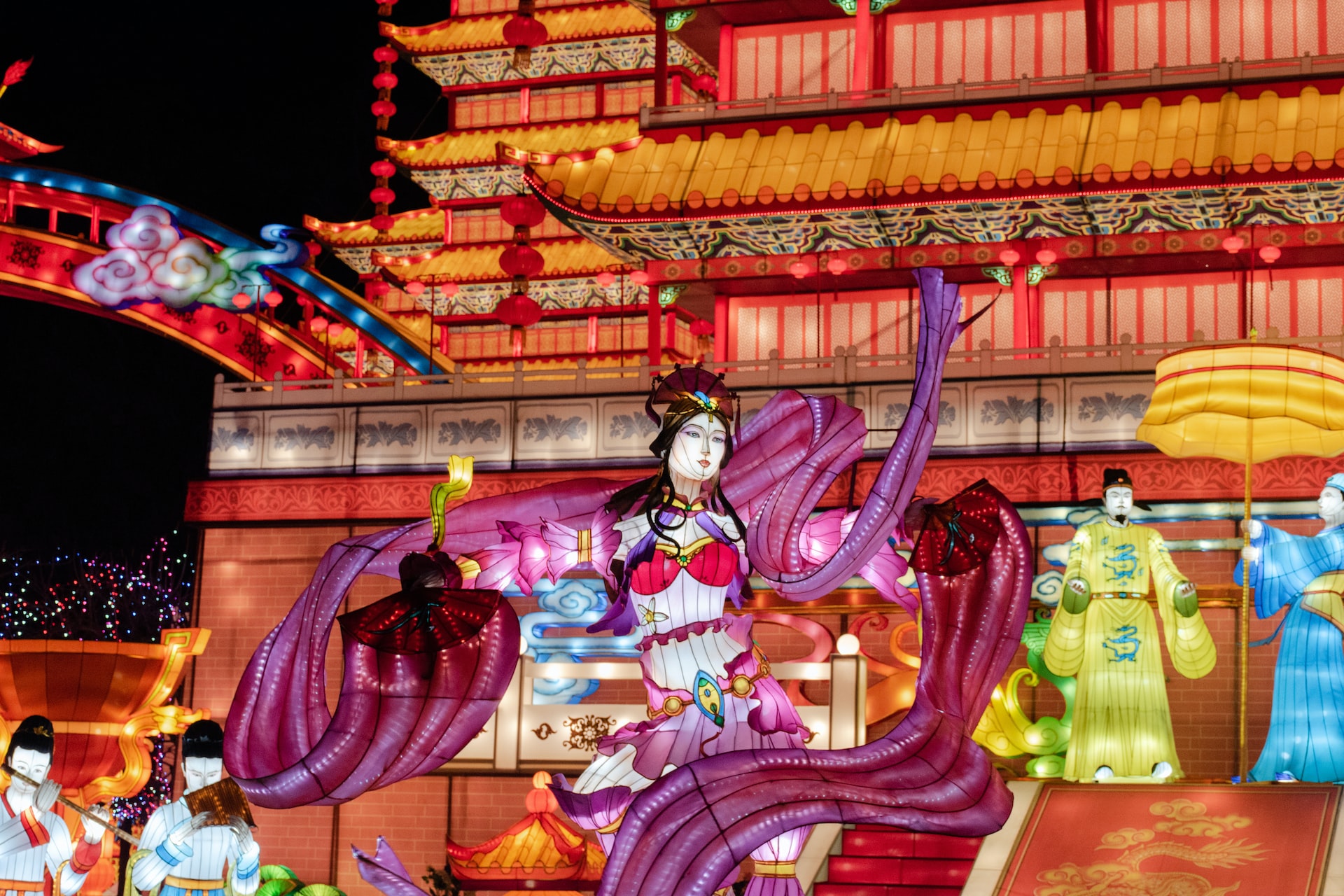1. Traditionally, debts and loans are paid/cancelled and any grudges of the past 12 months are forgotten. (Credit card companies and home loan firms do not recognize this part!)
2. But one cool money-related thing DOES happen, at least in Hong Kong: many companies give employees a month’s extra pay. In Hong Kong, this roughly matches people’s annual tax bill, and is used to pay that off, giving them effective tax-free status year after year.
3. The world’s BIGGEST seasonal migration happens, with hundreds of millions of people on the move, and more than a billion train tickets sold in China.
4. The main theme is flowers – in Hong Kong, flower pop-up shops appear everywhere, and on the streets people carry potted plants or floral displays to give to family and friends. Sayings in gold print on red backgrounds are placed on doorways.

5. In parts of mainland China, and neighboring places such as Vietnam, firecrackers are set off to scare away evil spirits.
6. On the last night of the previous Chinese year, the family dines together and children receive lucky money in red envelopes. These days, low level workers such as cleaners and security guards get similar gifts from people in higher status jobs.
7. Traditionalists will place a lighted lamp in front of the shrine of the Kitchen God, who is expected back from his trip to see the senior gods.

8. Another old tradition is for people to adjourn to the courtyard to step on branches of certain trees (often sesame, fir and cypress). These are burned as a symbol of completion of the old year. Peach tree branches, ready to bud, are put on display in the foyers of buildings.
9. Then there’s the ancient tradition for the doors to be sealed and locked until 5 a.m. the next day, when the whole family (plus staff, concubines, etc), rise early to watch the master of the house reopen the doors and officially welcome the newborn year into their lives.
10. Some families will start the new year with a little ceremony in which incense sticks are lit and the Kitchen God is welcomed home.

11. New Year’s Day sees the family gather, usually with no outsiders. Some follow a tradition that no meat is eaten, since it requires cutting with a knife. Also, the floors are not swept, in case good luck is brushed out of the premises.
12. There are several standard greetings. Popular ones in modern days are gung hay fat choy in Cantonese and gong xi fa cai in Mandarin: These are wishes for you to have prosperity.
In fact, there are lots of fascinating traditions from the past, some with complex histories attached to them. Foreigners may enjoy asking their friends and neighbors which ones they follow.
Image at the top by note thanun on Unsplash
